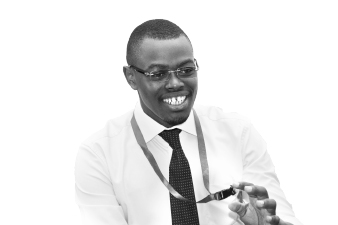As the world joins the Rwandans in the 100 days of morning (Kwibuka) to commemorate the 23 years since the infamous 1994 Genocide perpetuated against the Tutsi, I want to propose to the peoples of East Africa and the wider Great Lakes region to engage in dialogue on building peace. Whereas the Kwibuka focuses on the 1994 massacre of the Tutsi in Rwanda, mention must be made of the subsequent conflicts that are continuing to claim lives and displacing people leaving them homeless.
Unfortunately, recent peace and security challenges in areas of Kasese and previously in Northern Uganda have tested our ability to maintain the peace. The thin line is evident between organized crime, geo-cultural clashes, street political indiscipline by a section of political leaders, and many more.
There has also been an evolution in the crime situation until the most recent ones. Just like the genocide against the Tutsi, the 20 year civil unrest in Northern Uganda which is seemingly of a political nature, the recent clashes in Kasese that are seemingly due to geo-cultural and land disagreements, and a few scattered attempts to attack Military installations in Uganda are not an extension of Independence celebrations but rather a point that should concern every Ugandan citizen and the greater Great Lakes Region and the powers that be.
Like President Paul Kagame said, “Historical clarity is a duty of memory that we cannot escape. Behind the words “Never Again”, there is a story whose truth must be told in full, no matter how uncomfortable. And I believe that dialoguing on the Rwandan genocide against the Tutsi is ideal and critical for us to build peace and renew our unity.
Who said that the peace and security cases we have in DR Congo, Burundi, South Sudan and Uganda cannot escalate into another of even bigger genocide in the region? If anything, we should not forget that Uganda remains one of the homes for more that 1.5 million refugees from South Sudan, as the UN Refugee Agency figures show that Uganda took in 489,000 refugees from South Sudan in 2016, comparing to the 362,000 people who crossed into Europe via the Mediterranean Sea, one of the main routes that African and Middle Eastern migrants have taken to enter the continent.
My question remains, if we don’t dialogue on peace building, security and development, where will refugees go? Now that we appreciate the many refugee camps we have and seen as a home for millions of refugees, shouldn’t we better strive to maintain internal peace and security by engaging the young East Africans in understanding the genocide ideology, and encouraging them to be at the forefront of Peace building? East Africans should therefore sit to dialogue on Peace building and security. The rest of East Africa should learn from the history of Rwanda and the infamous 1994 Rwandan genocide perpetuated against the Tutsi and maintain the stance that “Never again”
The writer is an Alumnus of NAR’s Peace Building Institute of 2017 and is the Executive Director, Youth Aid Africa.


